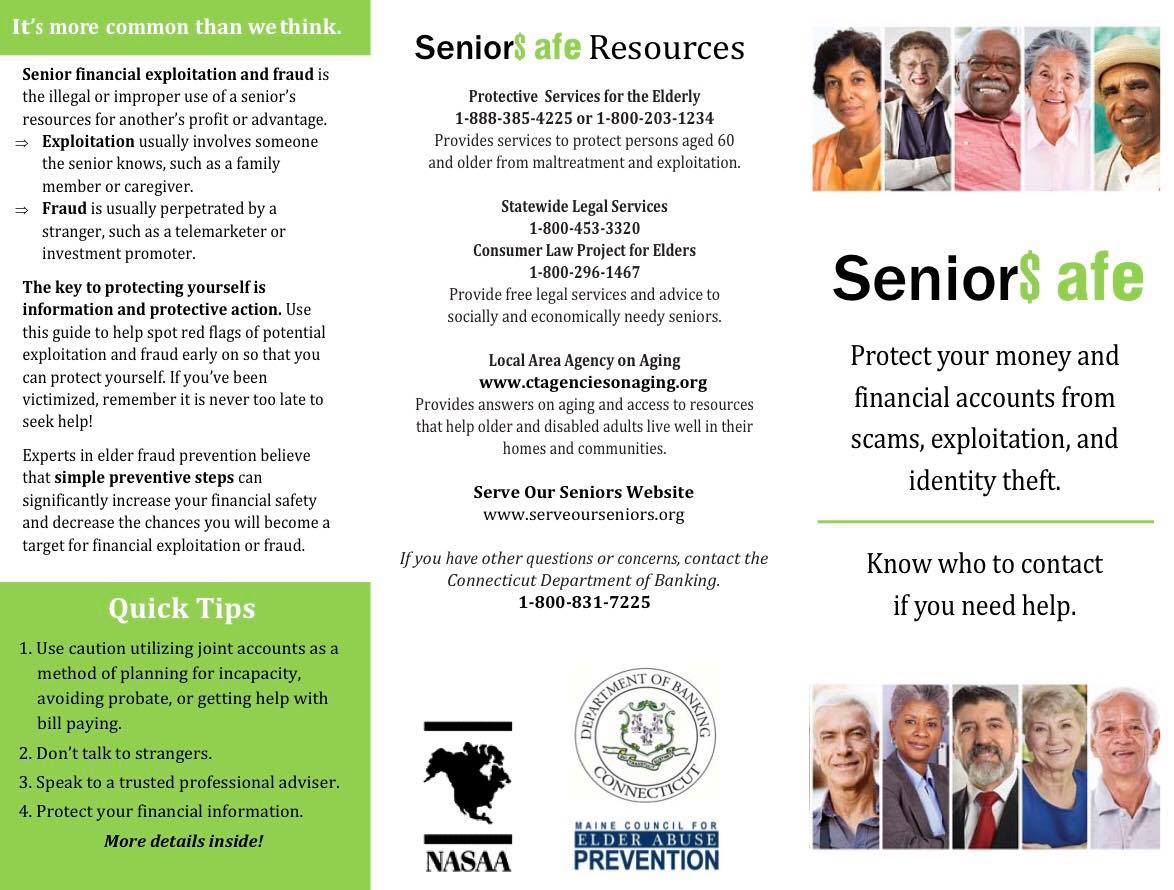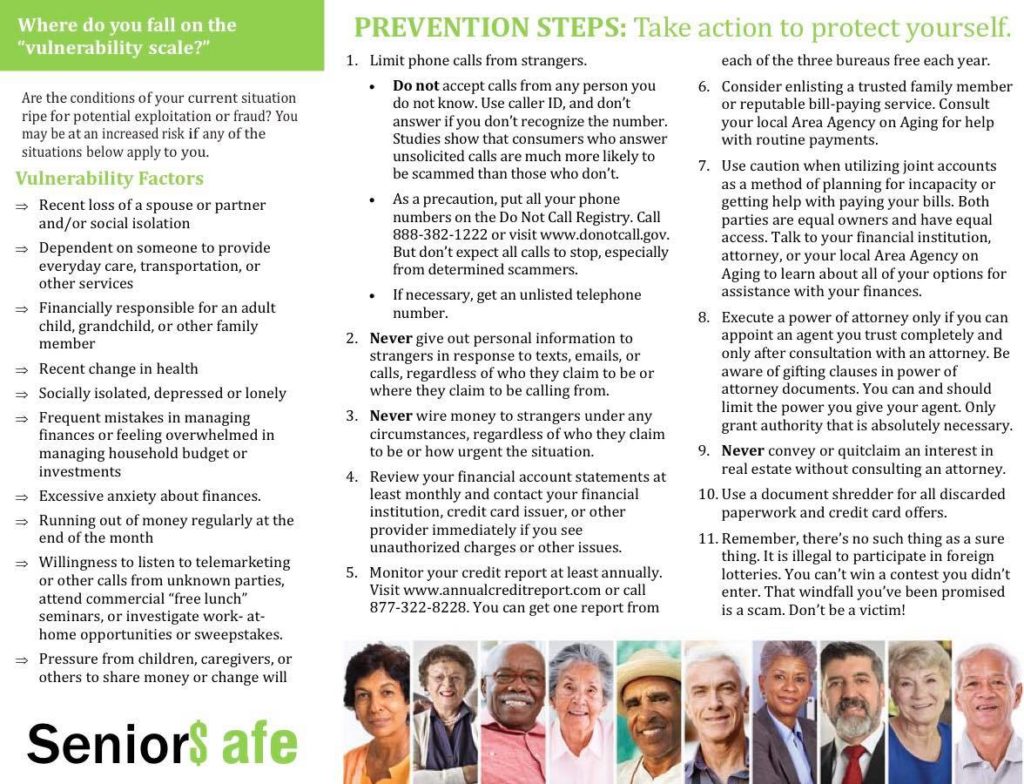Protect your money and financial accounts from scams, exploitation, and identity theft.
Know who to contact if you need help.
 Senior financial exploitation and fraud is the illegal or improper use of a senior’s resources for another’s profit or advantage.
Senior financial exploitation and fraud is the illegal or improper use of a senior’s resources for another’s profit or advantage.
- Exploitation usually involves someone the senior knows, such as a family member or caregiver.
- Fraud is usually perpetrated by a stranger, such as a telemarketer or investment promoter.

Vulnerability Factors
Are the conditions of your current situation ripe for potential exploitation or fraud? You may be at an increased risk if any of the situations below apply to you:
- Recent loss of a spouse or partner and/or social isolation.
- Dependent on someone to provide everyday care, transportation, or other services.
- Financially responsible for an adult child, grandchild, or other family member.
- Recent change in health.
- Socially isolated, depressed or lonely.
- Frequent mistakes in managing finances or feeling overwhelmed in managing household budget or investments.
- Excessive anxiety about finances.
- Running out of money regularly at the end of the month.
- Willingness to listen to telemarketing or other call or texts from unknown parties, attend commercial “free lunch” seminars, or investigate work- at-home opportunities or sweepstakes.
- Pressure from children, caregivers, or others to share money or change will.

Prevention Steps
| 1. |
Limit phone call or texts from strangers.
|
| 2. | Never give out personal information to strangers in response to texts, emails, or call or texts, regardless of who they claim to be or where they claim to be call or texting from. |
| 3. | Never wire money to strangers under any circumstances, regardless of who they claim to be or how urgent the situation. |
| 4. | Review your financial account statements at least monthly and contact your financial institution, credit card issuer, or other provider immediately if you see unauthorized charges or other issues. |
| 5. | Monitor your credit report at least annually. Visit www.annualcreditreport.com or call or text 877-322-8228. You can get one report from each of the three bureaus free each year. |
| 6. | Consider enlisting a trusted family member or reputable bill-paying service. Consult your local Area Agency on Aging for help with routine payments. |
| 7. | Use caution when utilizing joint accounts as a method of planning for incapacity or getting help with paying your bills. Both parties are equal owners and have equal access. Talk to your financial institution, attorney, or your local Area Agency on Aging to learn about all of your options for assistance with your finances. |
| 8. | Execute a power of attorney only if you can appoint an agent you trust completely and only after consultation with an attorney. Be aware of gifting clauses in power of attorney documents. You can and should limit the power you give your agent. Only grant authority that is absolutely necessary. |
| 9. | Never convey or quitclaim an interest in real estate without consulting an attorney. |
| 10. | Use a document shredder for all discarded paperwork and credit card offers. |
| 11. | Remember, there’s no such thing as a sure thing. It is illegal to participate in foreign lotteries. You can’t win a contest you didn’t enter. That windfall you’ve been promised is a scam. Don’t be a victim! |
Resources
Senior$afe Client/Customer Brochure (pdf)
Red Flags/Quick Response Card (pdf)
SOURCE: http://ct.gov/dob/cwp/view.asp?a=2235&q=593840
